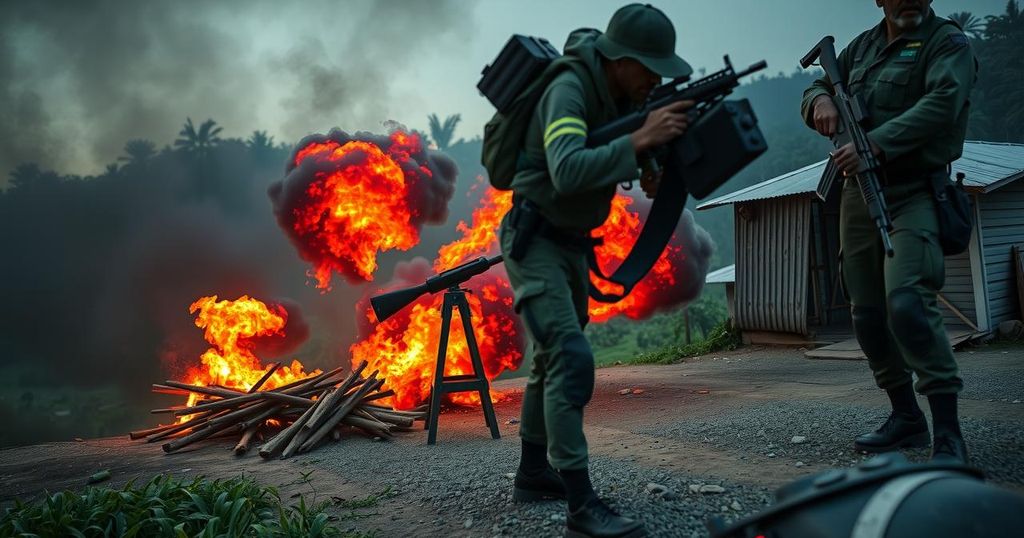Escalating Violence in Eastern Congo Precedes Crucial Peace Talks

Fighting in eastern Congo between the army and M23 rebels has intensified ahead of scheduled peace talks. The Congolese army accused M23 of civilian killings, while the rebel group denied the claims. With over seven million displaced due to the conflict, urgent negotiations are essential, although analysts express skepticism regarding the outcome.
Fighting has escalated between the Congolese army and the M23 rebel group in eastern Congo, marking a significant intensification as peace talks are scheduled for this Sunday. The Congolese army accused the M23 of killing twelve civilians in villages within the Lubero territory of North-Kivu province. However, a spokesperson for M23 refuted this assertion, labeling it as governmental propaganda. The M23 is among roughly 100 armed factions contending for control in the resource-rich eastern Congo, an ongoing conflict contributing to one of the world’s most severe humanitarian crises, with over seven million people displaced.
There are allegations from Congo and the United Nations accusing Rwanda of supporting the M23 militants. Although Rwanda has denied these claims, it admitted earlier this year to having troops and missile systems deployed in eastern Congo, asserting that these measures were taken to protect its national security, especially given the increase in Congolese military presence near the border. U.N. experts estimate that as many as 4,000 Rwandan troops are currently in Congo.
Despite a ceasefire agreement signed in July, which took effect in August, violations have persisted, prompting serious concern from the United States regarding the situation on the ground. With less than a week remaining before the peace discussions, President Felix Tshisekedi of Congo and President Paul Kagame of Rwanda are scheduled to meet in Angola, a neutral nation involved in mediating the conflict. This meeting will be their first official dialogue since last year.
Local residents, like Aline Kasereka, express a dire need for peace negotiations. “We are tired of the war, every day we move, we do not know in which country we are anymore,” she stated, urging that both governments should come together to find a resolution and restore normalcy to their lives. However, analysts remain skeptical about the potential success of the talks, suggesting that both nations are inclined to blame each other, complicating the prospects for a peaceful settlement.
The ongoing conflict in eastern Congo, particularly involving the M23 rebel group and the Congolese military, underscores a protracted struggle over control of valuable mineral resources in the region. Approximately 100 armed groups operate in this volatile area, contributing to widespread instability and humanitarian crises, with millions displaced since the conflict’s inception. The M23 group, initially formed by former soldiers of the Congolese army and other militia factions, has repeatedly clashed with government forces, leading to international concern regarding Rwanda’s alleged involvement. The conflict has prompted various diplomatic efforts, including mediation by Angola, aimed at fostering dialogue and reducing military confrontations.
In summary, the current escalation of fighting between the Congolese army and M23 rebels highlights the fragile situation in eastern Congo, as both parties prepare for vital peace talks. The interplay of local grievances, regional power dynamics, and international involvement, particularly concerning Rwanda, complicate the path to lasting peace. The urgent pleas from civilians underscore the pressing need for a meaningful resolution that restores stability and addresses the humanitarian crisis in the region.
Original Source: apnews.com








